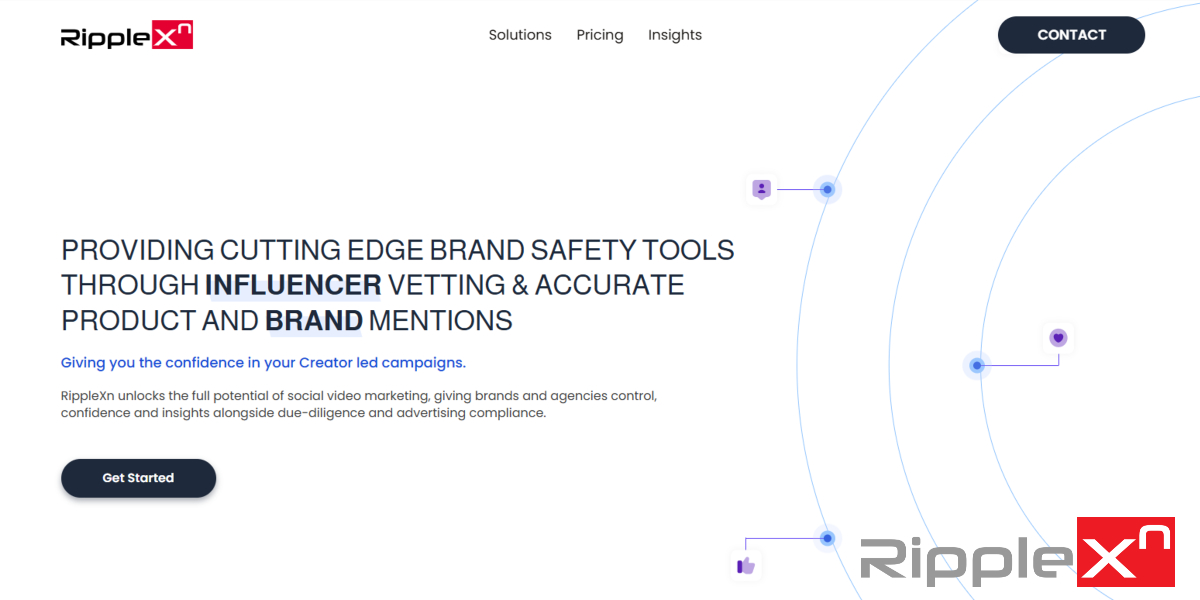Whether it’s the Better Business Bureau, FTC, GDPR, ISO or Cyber Essentials, brands and agencies have heard the phrase, “compliance is key,” more often than you care to count.
But when it comes to influencer marketing, this isn’t just a cliché—it’s vital.
Compliance isn't just about box-checking; it's an evolving framework that touches every influencer partnership and promotion. And with the FTC’s updated 2023 guidelines on affiliate marketing and endorsement, there's an extra layer of responsibility.
It’s not just the influencers held accountable— it’s also the brand, and by extension, their agencies.
But why should you care?
It’s simple; you should care because, however time-consuming compliance might be, it’s the bedrock of all marketing activity - the universal set of rules that makes it possible for businesses to attract and compete for customers. Beyond that, non-compliance doesn't just risk legal repercussions; it could erode the essential trust relationship you’ve built with consumers.
Compliance Is Universal
If you think that because of where your agency or brand is based you're exempt from U.S. rules, think again. The new regulations have international reach.
Whether your influencer's post is an Instagram Story, TikTok, blog, or a YouTube video, if it's accessible in the U.S., it falls under the FTC’s remit.
Let's add another layer to this: other countries are also ramping up their regulations. Take, for example, the UK’s planned Online Safety Bill.
These laws are here to protect consumers, but they also offer an opportunity for brands to elevate their practices, listen more effectively to their audiences, and, as a result, craft campaigns that resonate on a deeper level.
Influencer Marketing Compliance: What You Need to Know
Here are a few things you need to know about influencer marketing compliance:
- Your partnered influencer must disclose when they are being paid to promote your product or service, even if they are just receiving free product or access to services.
- You must monitor influencer content to make sure it complies with ALL regulatory law, whether that content can be seen..
- You must have a process in place to address instances where influencers you work with are NOT compliant.
The Benefits of Compliance — Beyond Avoiding Penalties
Sure, steering clear of fines and other legal penalties is a good thing.
But compliance offers more than basic brand safety; it's your gateway to more informed and effective marketing. For agencies and influencers alike, showcasing a deep understanding and strict adherence to compliance only makes you more attractive to potential partners.
It signals that you're not only aware of the laws but that you also understand the spirit behind them: to build transparency and trust with consumers.
Compliance Is More Than Legal; It’s Ethical
Here's where many get it wrong: they view compliance as a legal obligation rather than as a component of ethical marketing. The law might set the baseline, but authentic engagement requires a deep understanding of your audience's needs and concerns.
By committing to compliant practices, you’re essentially voicing that you respect your consumer.
And guess what?
They'll likely repay you with trust and loyalty, the cornerstones of any successful brand.
Navigating the Minefield with RippleXn
Monitoring compliance can be a mammoth task, which is where platforms like RippleXn come in to ease the load. Whichever social and influencer monitoring tools your brand or agency is using, the one thing that - assuming you’re not already a RippleXn customer - they are NOT doing, is monitoring social video. And that’s a problem.
In fact, the FTC rules state that if you don’t have the resources to monitor social video at scale, then you should be only engaging in influencer marketing where you get to pre-approve posts before they go live. That’s not very practical if you want to stay competitive..
RippleXn makes it easier for brands and agencies to stay on the right side of regulations when operating at a meaningful scale. We can also integrate with your other monitoring tools, to generate invaluable insights, and help keep your campaigns within the boundaries of the law.
Influencer Compliance, The FTC and More: Wrapping It Up
It’s 2023. Compliance in influencer marketing is not a future problem; it's a present challenge and an ongoing responsibility.
Ignoring it won’t make it go away, but embracing it will make your campaigns more effective. So, the next time you find yourself tuning out at the mention of "compliance," remember: It's not a burden; it's your best friend in building a trustworthy brand.
For more information on influencer marketing compliance, download our latest eBook.






